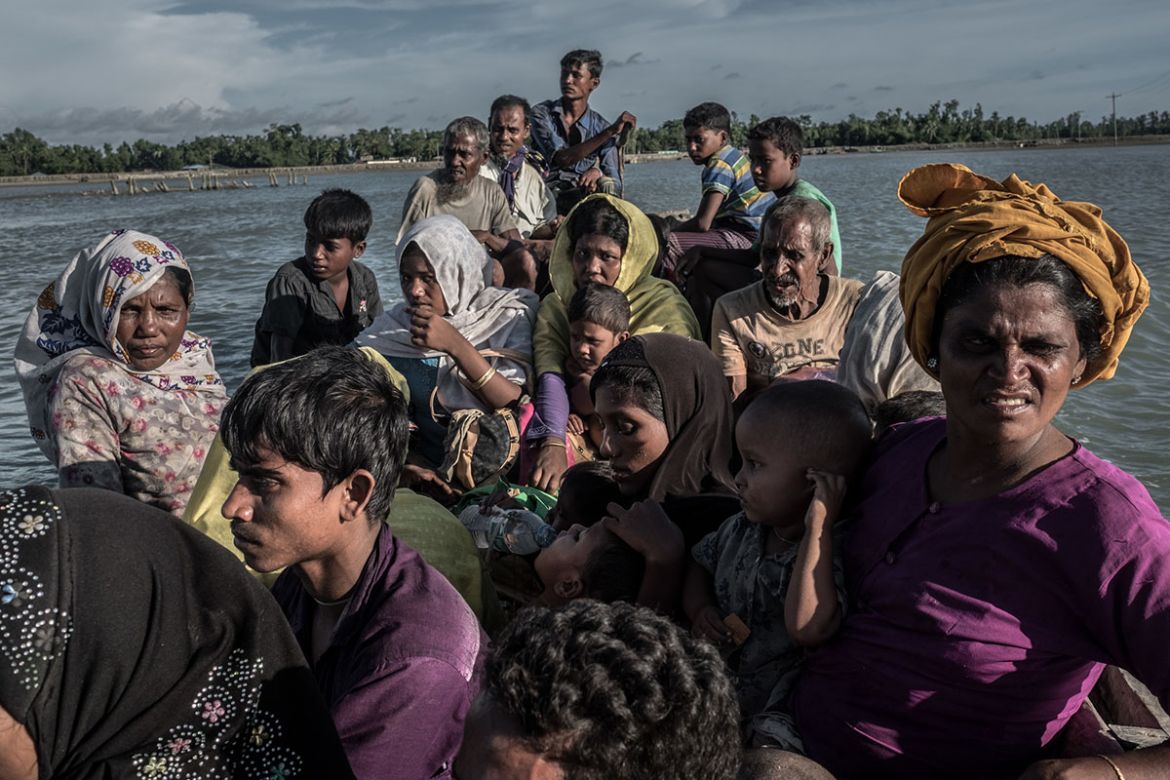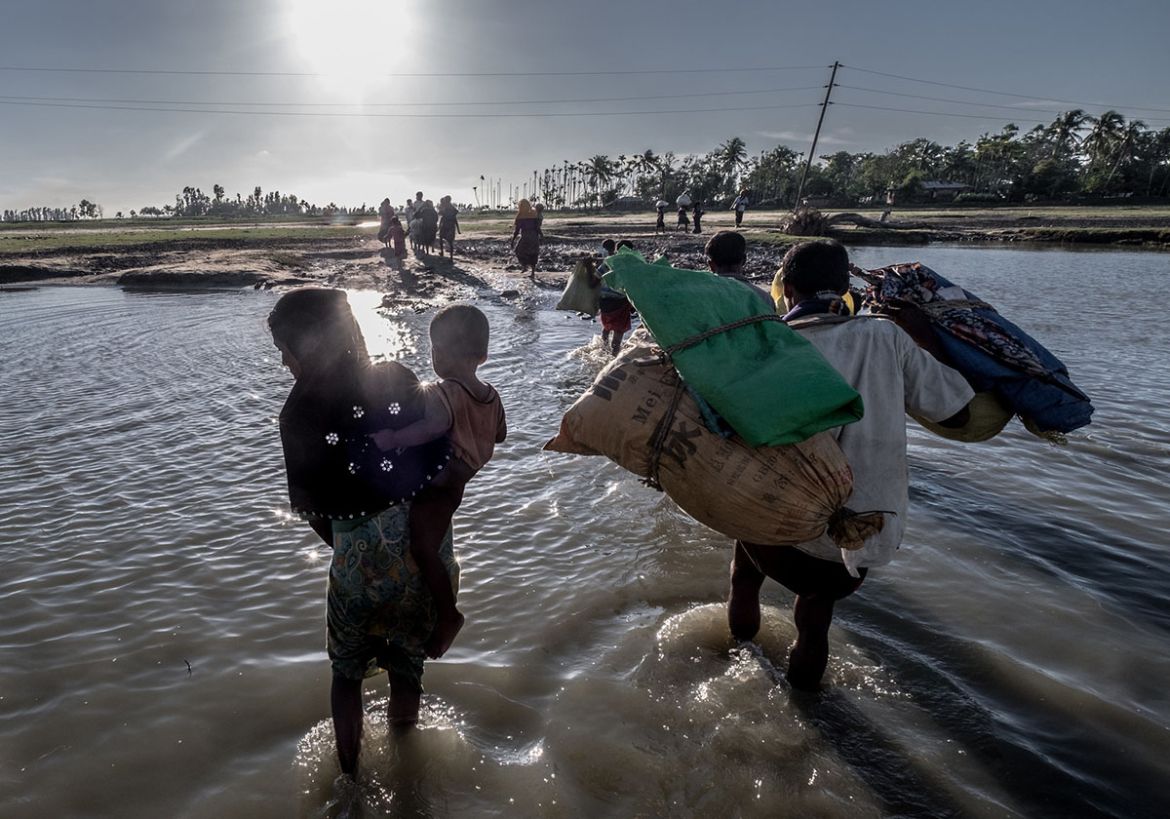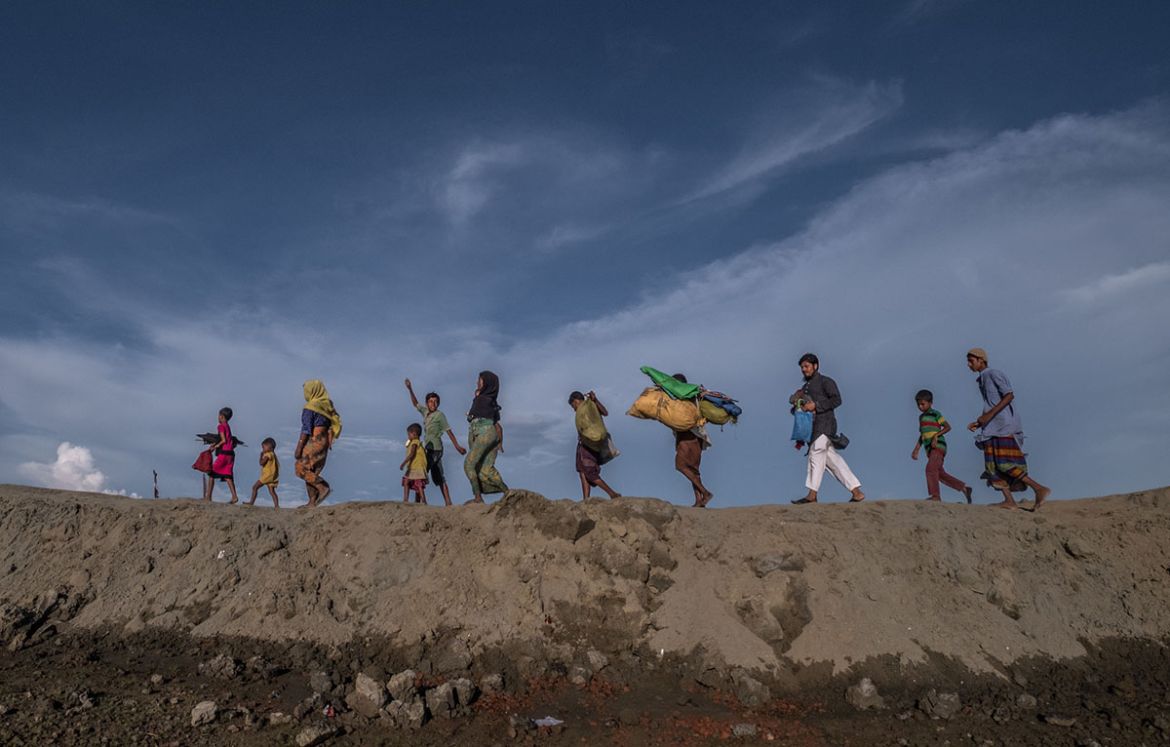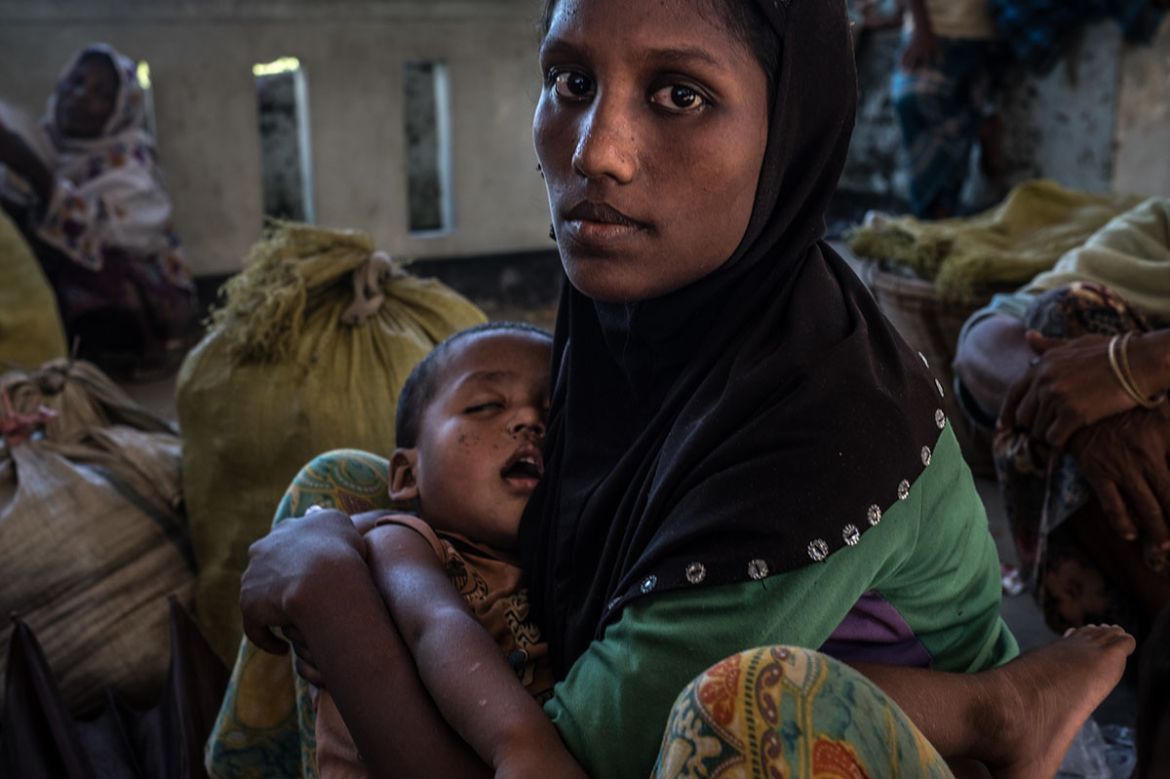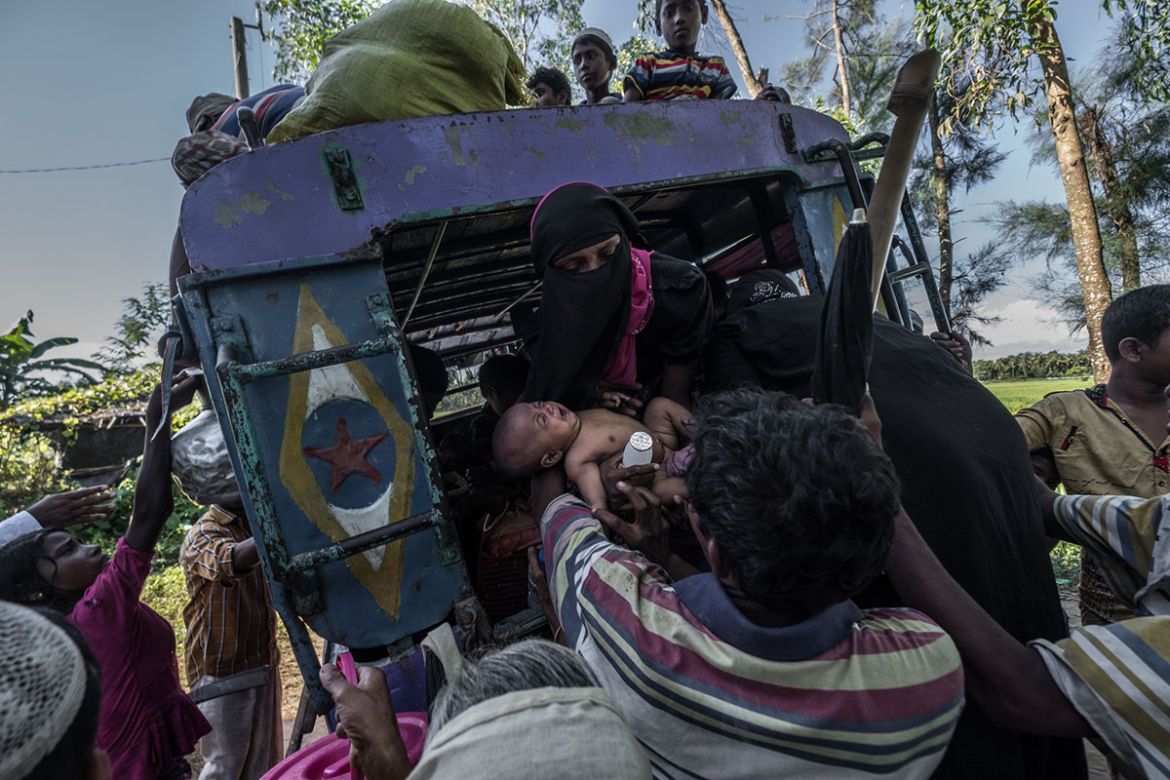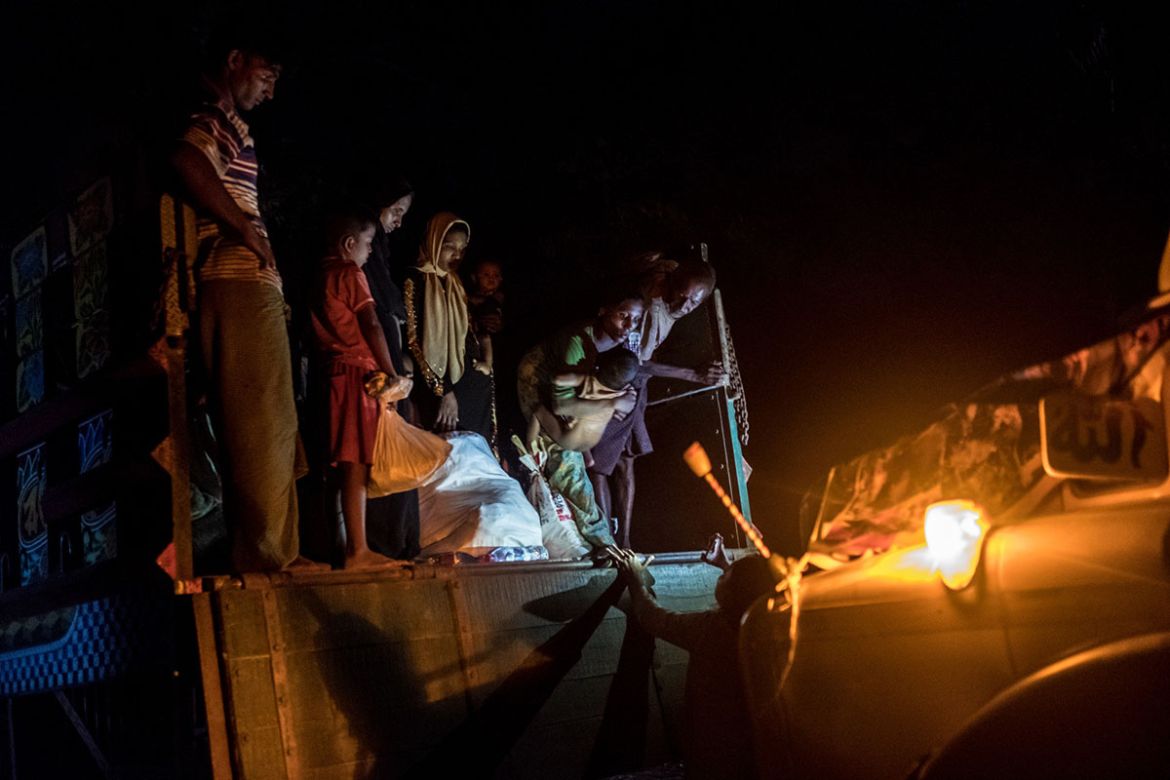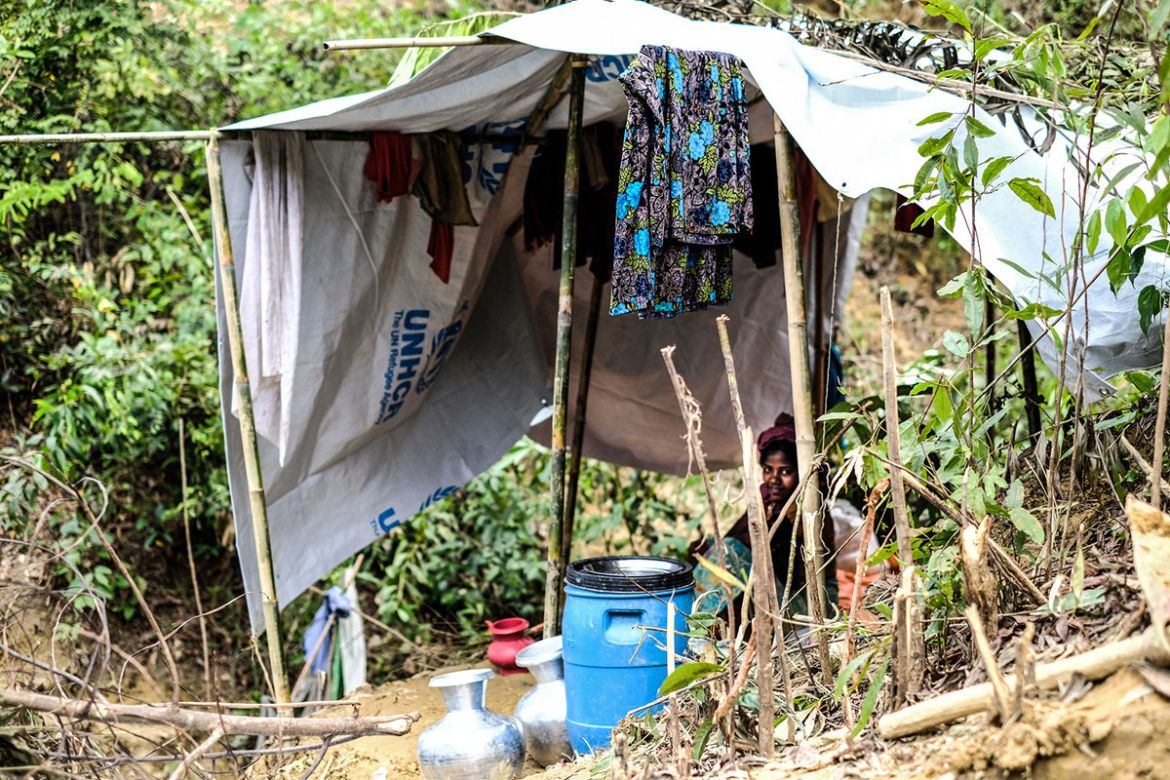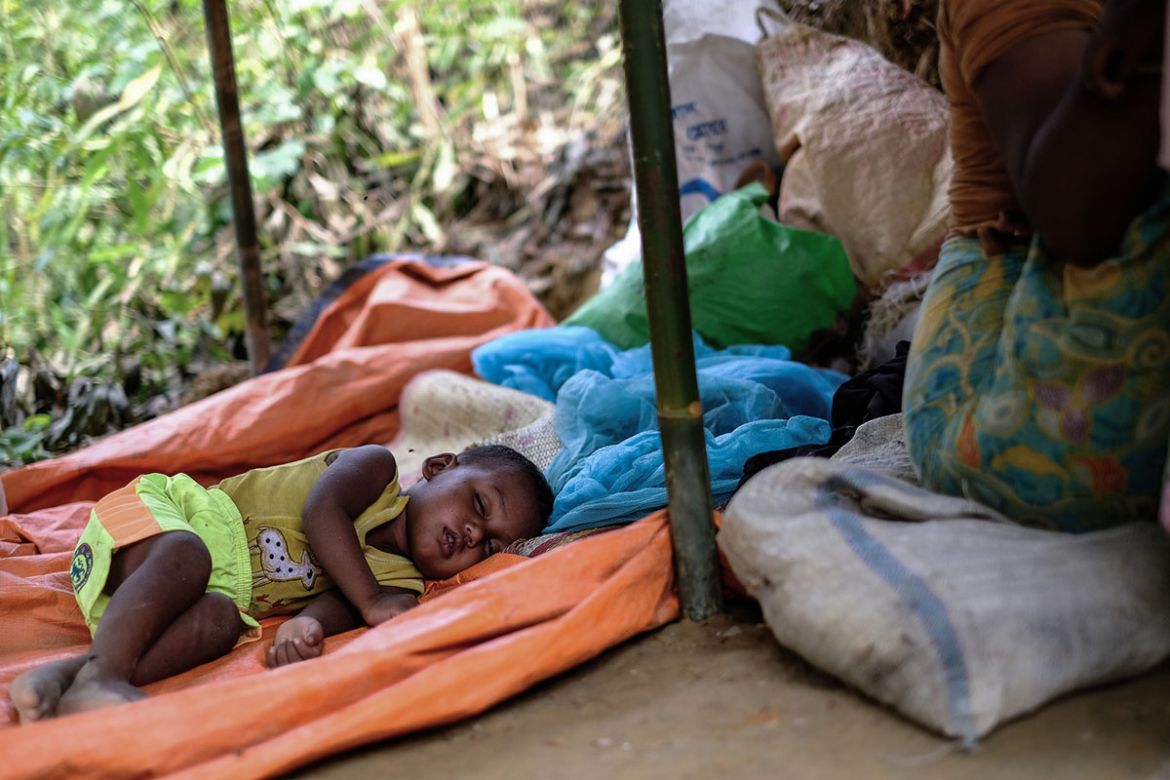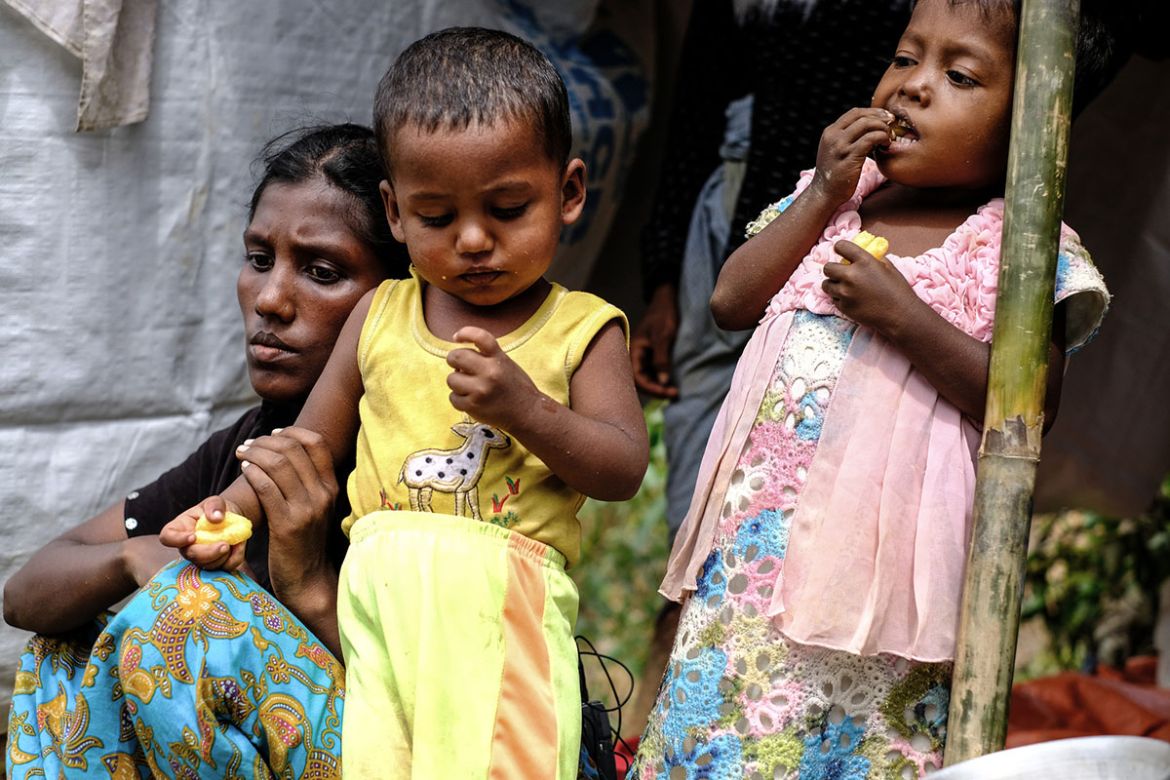In Pictures
The perilous flight of a Rohingya refugee
Laila, who is pregnant with two young children, describes the treacherous journey from Myanmar to Bangladesh.
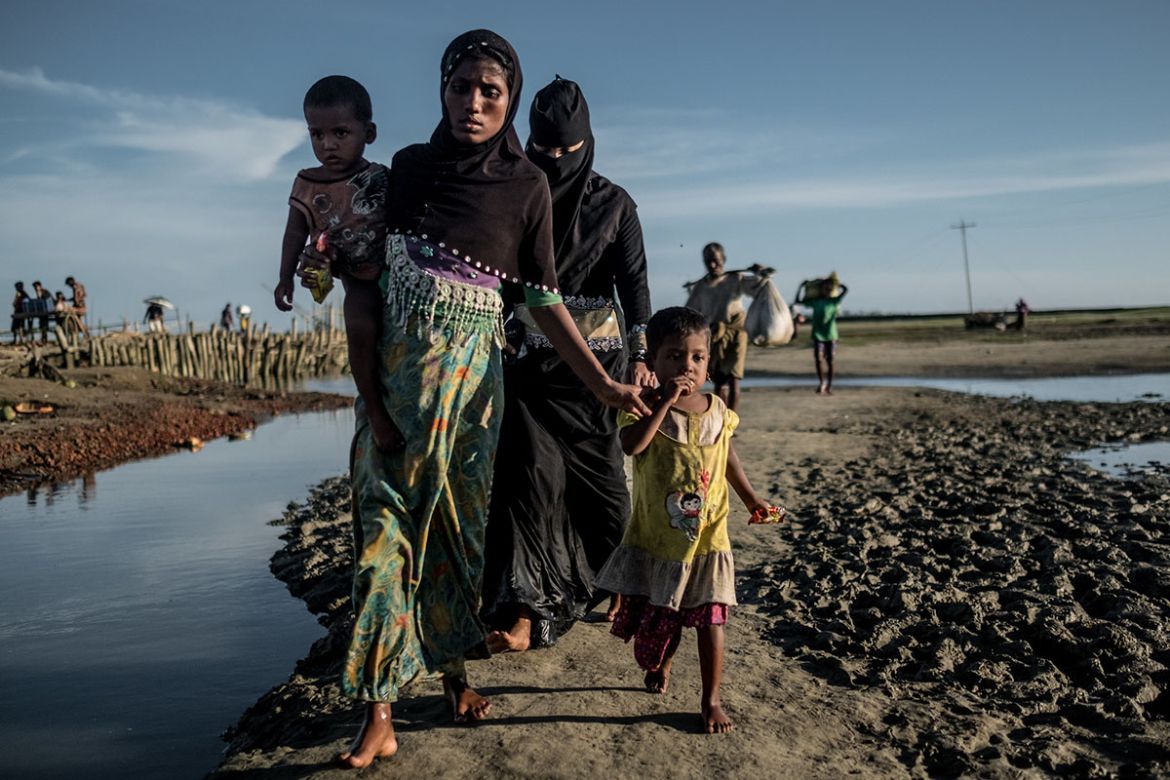
Published On 24 Oct 2017
Cox’s Bazar, Bangladesh – Since August 25, about 600,000 Rohingya refugees have crossed over into Bangladesh’s southeastern districts from Myanmar.
More than half are women, and 60 percent of these are girls under 18. They have faced a treacherous journey across the border, fleeing violence in northern Rakhine State in Myanmar.
This story follows Laila, who is five months pregnant, and her two children. Laila arrived in Bangladesh in late September. She spent a night on an island, taking shelter in a local school, before travelling by boat to mainland Bangladesh, her fare paid by locals aiding the refugees.
Laila received food and a piece of tarpaulin before being transported to Balukhali camp, where she arrived after dark.
